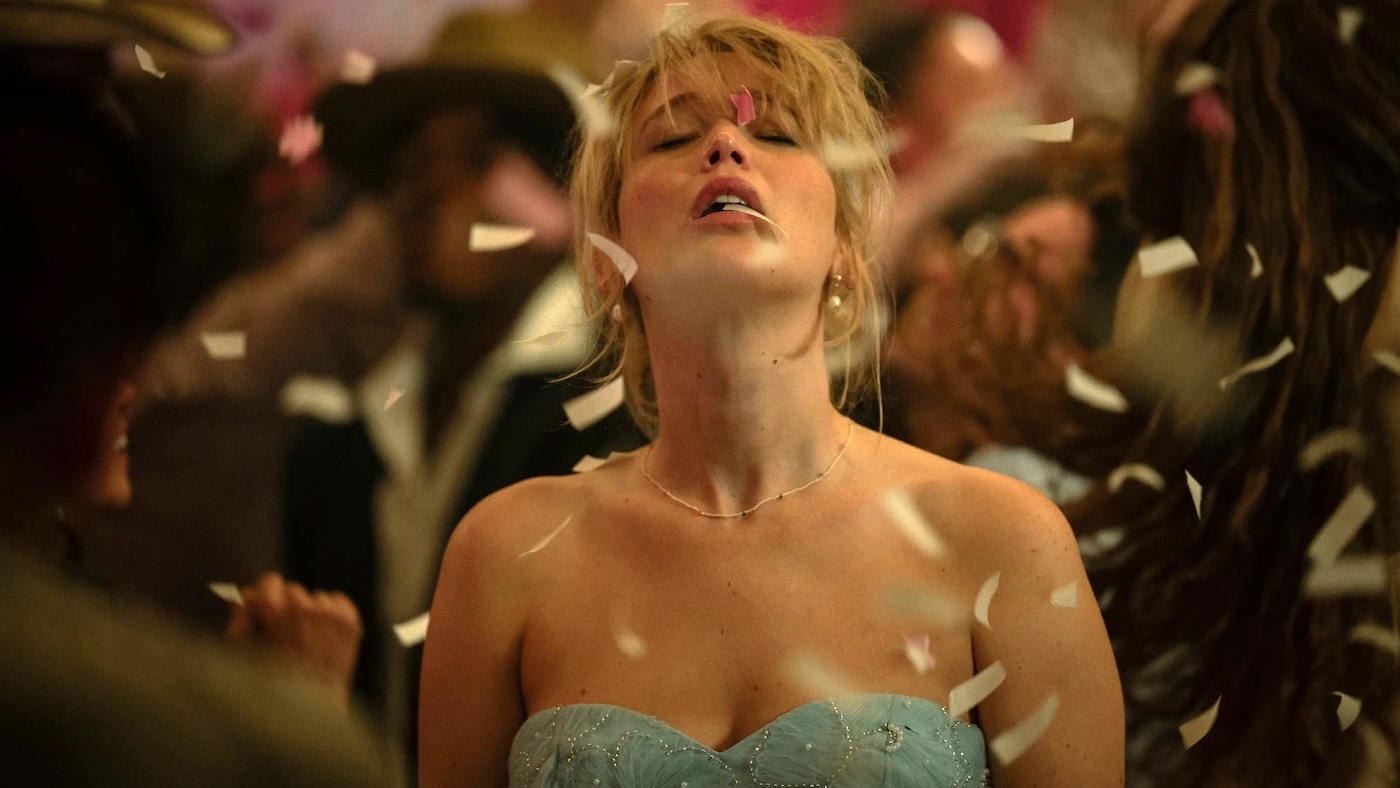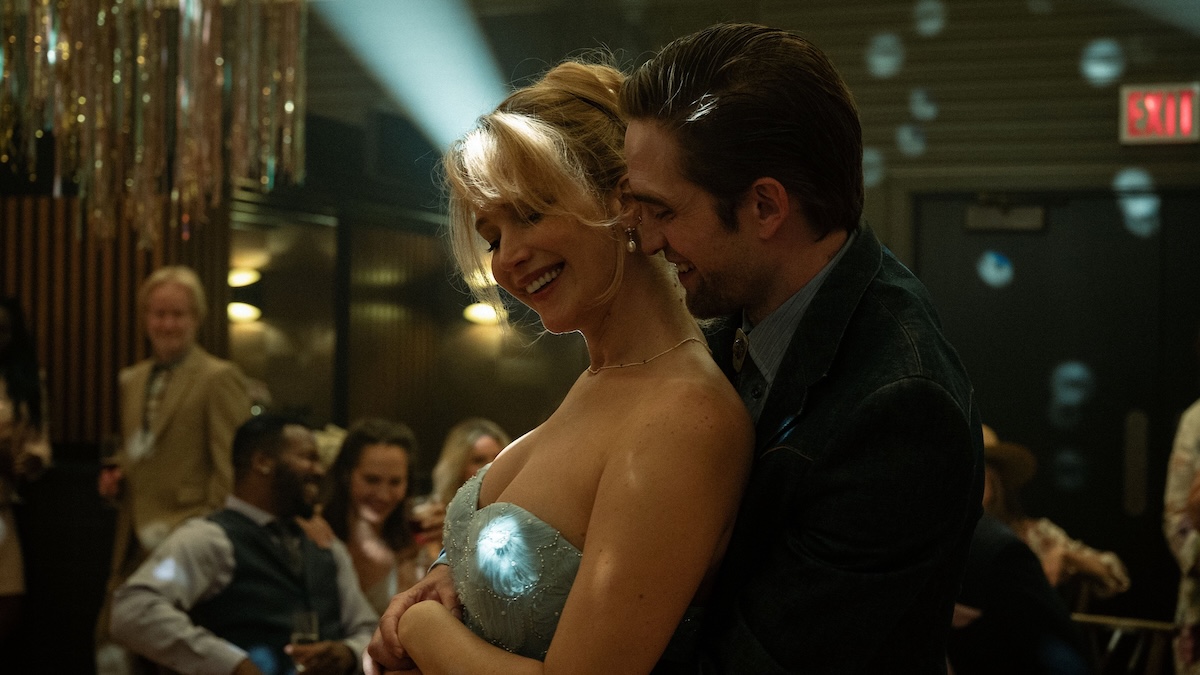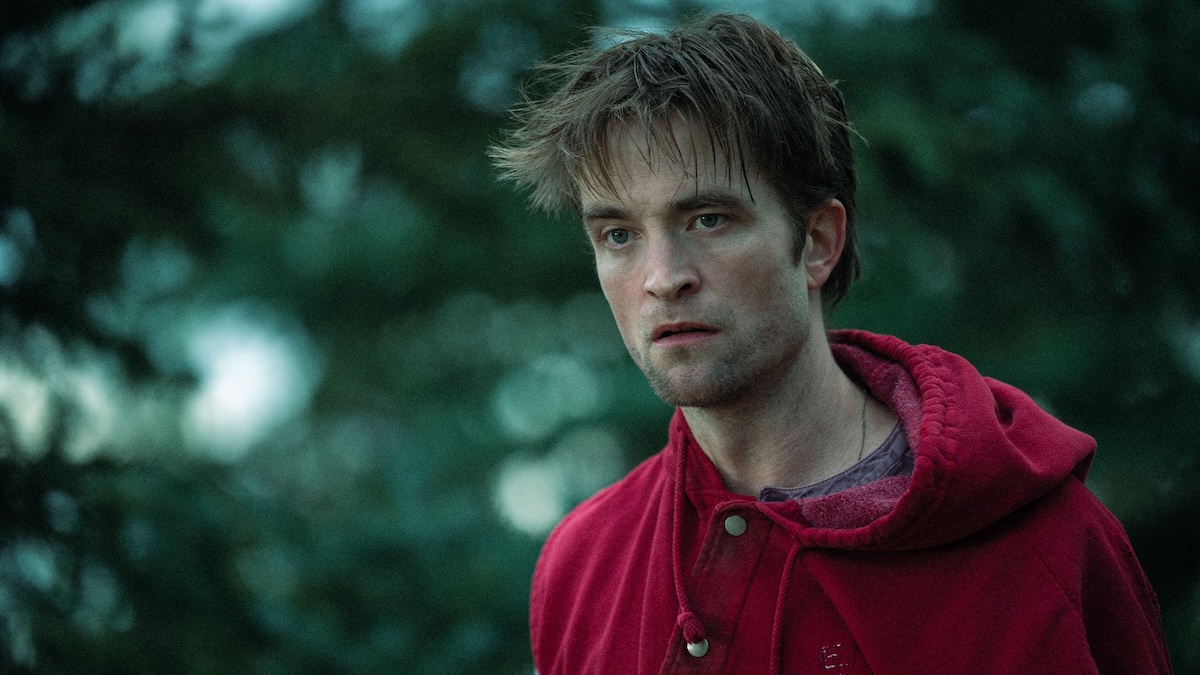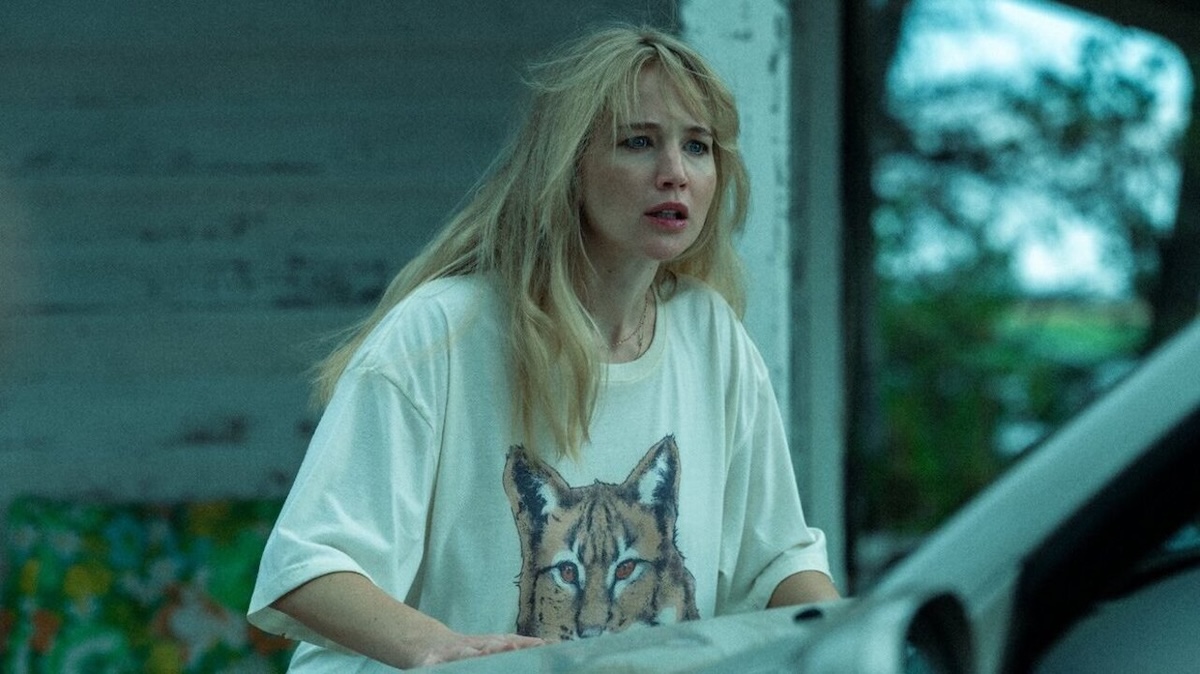DIE MY LOVE (2025)
A writer and young mother slowly slips into madness, locked away in an old house, leaving her companion increasingly worried and helpless.

A writer and young mother slowly slips into madness, locked away in an old house, leaving her companion increasingly worried and helpless.

Lynne Ramsay’s fifth theatrical feature, Die My Love, stars Jennifer Lawrence (No Hard Feelings) as a writer who moves out of New York with her partner, Jackson (Robert Pattinson) to live in the countryside in his uncle’s old home. What starts as an electric, sexual relationship is left in tatters after their son, Harry, is born. While Jackson’s on the road for work, Grace (Lawrence) finds herself slipping into madness, consumed with grief, betrayal, and writer’s block. As it so graciously depicts postpartum depression in an important light, director Lynne Ramsay’s been keen to remind audiences that it’s not a story about postpartum depression. “It’s a comedy, and a love story,” Ramsay told The Film Verdict. “But it’s my kind of comedy and love story, so it’s going to be dark and fucked up.”
With her first feature film since You Were Never Really Here (2017), Ramsay hasn’t missed a beat, adding more to her case as one of the most interesting directors working today. Like her past works, Die My Love deals with heavy subjects. But it’s Ramsay’s decision to paint her characters with such empathy, allowing them to be messy and wonderful and complicated. Seeing these broken characters laid out on the screen really allows us to get to the core of them. Just like with Joaquin Phoenix in You Were Never Really Here and Tilda Swinton in We Need to Talk About Kevin (2011), Ramsay is able to get a sublime central performance out of her lead. And Jennifer Lawrence’s portrayal of Grace may be the best performance out of them all.

Jennifer Lawrence announced herself to the world with a fantastic performance in Winter’s Bone (2009). In Die My Love, she’s at the top of her game. Producer Martin Scorsese (Killers of the Flower Moon) recommended Lawrence personally after seeing her performance in Darren Aronofsky’s Mother! (2017). Despite being a writer, we never see Grace as a writer. Instead, she’s immediately thrown into a world she knows nothing about: a dark, lonely countryside far from New York City, where she has no support, not even that of her husband, Jackson.
Lawrence portrays Grace with the full breadth of her emotions, from very outward expressions of boredom to intense sexuality. Ramsay trades in subtlety to portray some of the more animalistic human emotions by having Lawrence crawl like a cat at different points in the film. But the brilliance in Lawrence’s performance lies in her ability to create empathy at every point of the film. As her character does things that may seem outlandish or show us that she may be on the brink of collapse, Grace never feels crazy. The grief and loneliness at the centre of her world is always prevalent and informs her every decision, showcasing a truly empathetic character. We always feel on Grace’s side and it’s a great performance to capture that feeling for two hours from Jennifer Lawrence.

Without Robert Pattinson’s portrayal of Jackson, Lawrence’s performance wouldn’t work quite as well. At the beginning, Jackson feels like a great partner to Grace. He truly loves her, has great sexual chemistry, and they seem to get along. But, once their son, Harry, comes along, his faults grow so much stronger. His lack of thoughtful decisions, infidelity, and lack of empathy and understanding towards Grace put their relationship on the fast track to a messy ending. The breakdown of their love makes everything more heartbreaking for Grace. However, Pattinson informs his performance with a similar empathy that makes it difficult to fully hate him. Besides his selfishness and mistakes, there seems to be real love there. He’s just incapable of showing it in the right way when she needs it. It has echoes of Leonardo DiCaprio’s performance in Revolutionary Road (2008), of a partner, despite the love and care they have for their partner, being incapable of showing it as the relationship deteriorates.
While Lawrence and Pattinson dominate the screen time, the few supporting characters help characterise the types of grief in relationships present. A nosy neighbour, Karl (LaKeith Stanfield), has his own brief moment of grief shown in his own marriage. But it’s Sissy Spacek who portrays Jackson’s mother, Pam, that commands the screen in her own way. After losing her husband, Harry, in a great brief role from Nick Nolte, she deals with the grief of love lost in death and feeling pushed aside by her own son and daughter-in-law. She’s the only one who really sees the pain in Grace’s life, but, as a mother to her son, still can’t fully throw her support behind her. It’s painful to watch her deal with so much grief in the shortest of time spans.

Even though the subject matter of Die My Love is so difficult to absorb, the film does look breathtaking. Cinematographer Seamus McGarvey is able to capture beauty in the desolate American countryside and the film’s 1.33:1 ratio does surprisingly create such confined shots in an otherwise wide-open landscape. Toni Froschhammer’s editing also deserves praise for the way scenes play out and then transition to one another. And best of all, the sound design is brilliant. The bare-bones score by George Vjestica, Raife Burchell, and Lynne Ramsay herself does heighten its effect when it does come in. Especially in the film’s dramatic ending, where all the emotional pain of the film comes to its climax in a beautiful manifestation of grief and pain. Plus the sound team does an excellent job highlighting the emotions to the audience. The puppy’s incessant barking in the film is just as annoying to us as it is to Grace.
Die My Love is a welcome return to the big screen from Lynne Ramsay and an even greater return for Jennifer Lawrence. It’s one of the most painful relationship stories on the screen in the past few years with fantastic performances from Lawrence and Pattinson. In one scene, Grace walks her baby down a dirt road in his pushchair. Jackson drives recklessly down the road, reeling from Grace’s behaviour the night before and fearing for the safety of his child. Getting out of the car, he stares at Grace before taking Harry back to the car, as Grace breaks down in tears for the first time in months.
Without a drip of dialogue, Pattinson and Grace convey a whole host of emotions to us. It’s such a painful scene and muted compared to some, maybe over-the-top, arguments and outbursts from earlier in the film. As Ramsay said, it’s “a comedy, and a love story.” When the few laughs fade out, the pain pervades the screen and brings out the realest of our emotions. Die My Love is a film that has stuck with me for the past few days, long after the credits roll and the lights of the theatre turn back on, taking me out of its dark nightmare.
UK • CANADA • USA | 2025 | 119 MINUTES | 1.33:1 | COLOUR | ENGLISH


director: Lynne Ramsay
writers: Enda Walsh, Lynne Ramsay & Alice Birch (based on the novel by Ariana Harwicz).
starring: Jennifer Lawrence, Robert Pattinson, Sissy Spacek, LaKeith Stanfield, Nick Nolte, Gabrielle Rose, Sarah Lind, Debs Howard & Clare Coulter.
